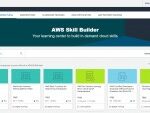Learning new skills, whether it’s a new language or advanced mathematics, requires time and effort. But what if you could accelerate the process and become a fast learner? Neuroscience offers insights into how our brains learn most effectively, providing proven techniques to optimize knowledge acquisition and retention. This article explores evidence-based strategies to help you learn faster and more efficiently.
 alt text: A picture of a human brain with connections
alt text: A picture of a human brain with connections
Ditch the Laptop: The Power of Pen and Paper
While typing notes might seem faster, research indicates that handwriting notes significantly enhances learning and retention. The physical act of writing engages different parts of the brain, fostering deeper comprehension and memory through muscle memory. When you manually transcribe information, you’re actively processing and reframing it in your own words, leading to better recall and improved performance.
Effective Note-Taking Strategies for Faster Learning
Developing strong note-taking skills is crucial for understanding and retaining information. Regardless of your chosen method, these tips can help you optimize your note-taking process:
- Paraphrase: Listen attentively and capture the essence of the information in your own words.
- Structure: Leave space between main ideas to facilitate later additions and revisions.
- Develop a System: Utilize abbreviations, symbols, and visual cues for efficiency.
- Concise Language: Focus on key phrases rather than writing complete sentences.
- Prioritize: Discern crucial information from less relevant details.
Distributed Practice: The Key to Long-Term Retention
Instead of cramming, distribute your study sessions over time. Short, spaced-out practice encourages meaningful learning and strengthens long-term memory. Review your notes shortly after taking them, then revisit the material at increasing intervals. This approach allows your brain to process and consolidate information more effectively.
The Sleep-Learning Connection: Rest for Success
Research highlights the crucial role of sleep in consolidating memories. Aim for deep sleep within 12 hours of learning new information to enhance long-term retention. Adequate sleep not only improves academic performance but also contributes to overall well-being and a more positive learning experience.
Mnemonic Devices: Unlock Your Memory Potential
Mnemonics are memory aids that utilize patterns, rhymes, or acronyms to facilitate memorization. These techniques help simplify complex information, making it easier to learn new words, concepts, or even entire languages. They’re particularly useful for students in demanding fields like medicine or law.
Brain Breaks: Combat Information Overload
To avoid mental fatigue and maintain focus, incorporate short breaks into your learning sessions. Information overload can hinder your brain’s ability to process and store information. Even a five-minute break can refresh your mind and improve concentration.
Multi-Sensory Learning: Engage Your Brain
Engage different parts of your brain by utilizing various learning methods. Combine reading, listening to podcasts, watching videos, and hands-on activities to create a richer and more interconnected understanding of the subject matter.
Connect New Knowledge to Existing Frameworks
Relate new information to what you already know to create stronger neural connections. Building upon your existing knowledge base provides context and deeper meaning, enhancing comprehension and recall. Elon Musk, a renowned entrepreneur, advocates for understanding fundamental principles first, creating a “semantic tree” upon which to hang new details. This method facilitates a more profound and lasting understanding.
